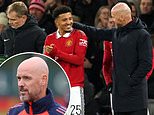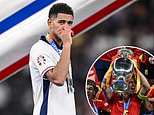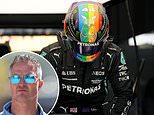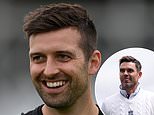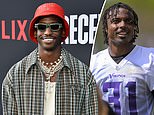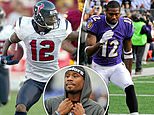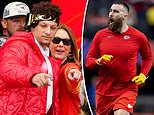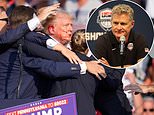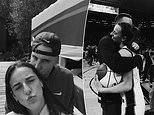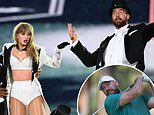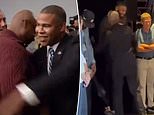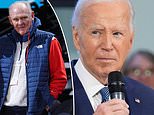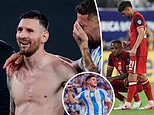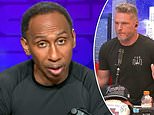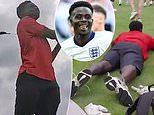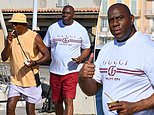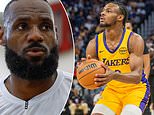England's history of Euros heartbreak: Three group-stage exits, two Wembley eliminations, fan trouble... and Roy Hodgson's infamous Parisian river cruise
- England have endured a multitude of heartbreaks at the Euros down the years
- Mail Sport's experts recount their memories from 10 tournaments of hurt
- LISTEN to It’s All Kicking Off! How Southgate made it enjoyable to play for England again
To say England have had mixed fortunes at European Championships would be an understatement.
Amid three group-stage exits, two heart-breaking Wembley eliminations, a Dutch demolition, no shortage of fan trouble and a Parisian river cruise, Three Lions fans have seen it all at the Euros… aside from that elusive victory, that is.
Here, Mail Sport’s men on the ground relive the good, the bad and the ugly from each of England’s Euro expeditions…
1968 – World Cup hangover for Ramsey’s boys as they are torched by a Dragan
By Jeff Powell
The bulk of England’s World Cup-winning team, led by Sir Alf Ramsey, made it into what was then a four-team finals stage. Only to be beaten 1-0 in the semi by a goal from Dragan Dzaijic, the old Yugoslavia’s greatest ever player.
A goal apiece from Bobby Charlton and Geoff Hurst were enough to beat the USSR in the third-place match but the boys of ’66 came home from Florence to a nation’s collective groan.
That sigh of disappointment became all the more profound when the World Cup was lost in Mexico two years later.
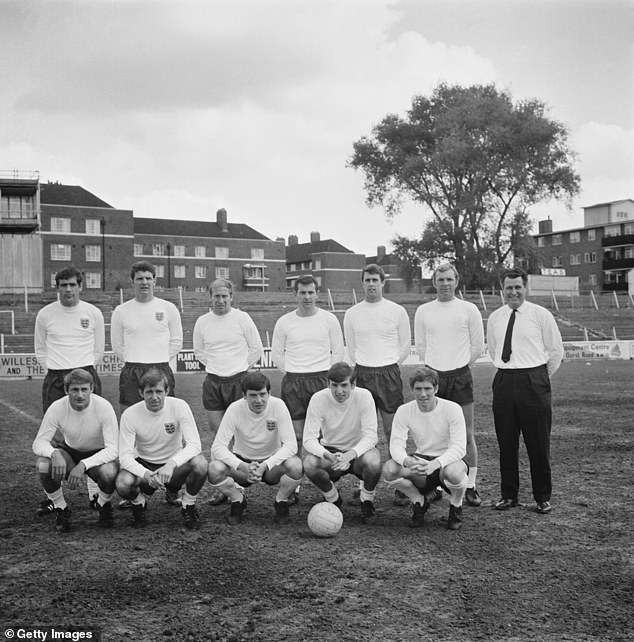
England's 1968 squad (pictured in qualifying) could not build on their 1966 heroics
-
 PODCAST: Have England been playing with fear as Southgate suggests?
PODCAST: Have England been playing with fear as Southgate suggests?
-
 LISTEN: Southgate only England manager to be criticised whilst winning
LISTEN: Southgate only England manager to be criticised whilst winning
-
 PODCAST: The REAL reason England through despite playing badly
PODCAST: The REAL reason England through despite playing badly
-
 PODCAST: 'Just ONE good performance' could change England's fortunes
PODCAST: 'Just ONE good performance' could change England's fortunes
-
 PODCAST: Are the England team buying into Southgate's style of play?
PODCAST: Are the England team buying into Southgate's style of play?
1980 – Chaos on and off the field, and Keegan and Co powerless to stop it
By Jeff Powell
After successive failures to qualify for the ’72 and ’76 Euro finals, England made it back to Italy. As was becoming the practice, jingoistic hopes were rampant again. This time to the detriment of the team.
Hooliganism was on the rise when British teams ventured into Europe and Turin was under siege by the yobs for England’s opening group match. They were level with Belgium courtesy of a goal from Ray Wilkins and gaining the ascendancy when mass fighting broke out in the Stadio Communale.
Italy’s riot police went in with batons flailing and choking smoke from their tear gas wafted across the famous old ground. Kevin Keegan went to the end of greatest unrest to appeal for calm but not even his esteem as a two-time European Footballer of the Year could quell the disturbance.
An uneasy peace was imposed by the carabinieri but the mood remained ugly and sinister. The England players, dismayed by the behaviour of their fans as well as distracted, eked out a draw in a match they could have won. Keegan and Co led the calls for a cessation of the troubles thereafter but the damage was done.
Three days later in the same stadium Italy’s 1-0 victory put England beyond redemption, even by a 2-1 win over Spain achieved by goals from Trevor Brooking and Tony Woodcock in the final group game. And so, to a silent, gloomy, early flight home.
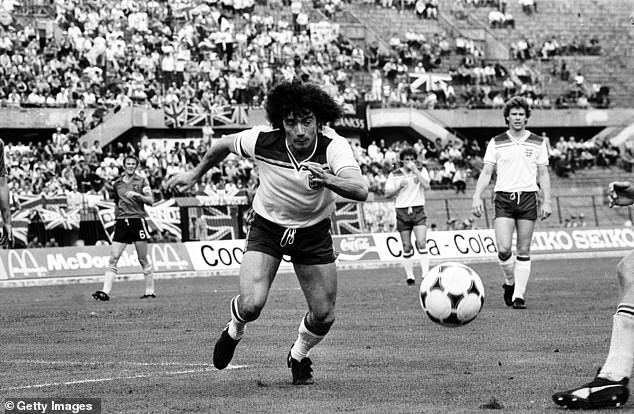
Kevin Keegan and Co were powerless to stop the chaos on and off the pitch in 1980
1988 – Another group stage exit as Lineker suffers
By Jeff Powell
The second retreat from Italy was followed by failure to qualify for France 84, to which they were condemned by Denmark’s victory at Wembley. Four years later they ended up wishing they had not qualified for Germany 88.
So catastrophic was this expedition that it ignited the cult of crucifying the manager. Bobby Robson’s England suffered a shock 1-0 defeat by Jack Charlton’s Republic of Ireland in the opening group game.
Ray Houghton scored early. The mystery as to why an unusually sluggish Gary Lineker failed to equalise from three good chances – hitting the post once – was explained by subsequent revelation that he had played under the debilitating effects of hepatitis B.
Worse, much worse, was to follow. Holland were in their Total pomp, with Ruud Gullit in command. A typically brave Bryan Robson goal kept the scores level at half time. Then Marco Van Basten rounded off his hat-trick with two goals in not many more minutes.
One 3-1 defeat was followed by another, at the hands of the Russians who went on to lose to the Dutch in the Final itself. Robson came home to giant headlines on front as well as back pages screaming: ‘For God’s Sake Go Robson.’
He went nowhere, staying to come within a penalty shootout of beating Germany in the 1990 World Cup semi-final in Italy, after which he would become Sir Bobby.

England suffered another group stage exit in 1988 and Bryan Robson came home to headlines of: ‘For God’s Sake Go Robson'
1992 – Swedes 2, Turnips 1
By Jeff Powell
One goal, one point, two goalless draws, one humiliating defeat. Graham Taylor’s turn to find his head on the chopping block, right at the death.
Nil-nil draws against Denmark and France in the first two group matches were not generally considered hanging offences, largely because there were expectations that a win over Sweden would carry England through.
Come the fateful evening in Stockholm even nerves about facing the host nation were settled by David Platt’s fourth minute pipe-opener. Too settled. The longer it went without even so much as an equaliser, the greater the panic set in on the England bench and among the fans.
There had been misgivings about Taylor among the media, myself included. Not least because of his preference for the rustic long-ball game, which was based on what proved to be a dubious reliance on statistics at international level, rather than a feel for class and flair.
An increasingly strained atmosphere hardened into hostile criticism when Taylor substituted Lineker, manifestly England’s best hope of salvation goals as Sweden went 2-1 up in the second half. Boos chased team and manager from the pitch.
Taylor woke up next morning to a brilliantly cruel headline in the Sun: SWEDES 2, TURNIPS 1. Beneath it he saw his face mounted on an image of that root vegetable.
Like Robson four years earlier, Taylor refused to go. Unlike Sir Bobby, Mister Graham was sacked when he failed to qualify for the ensuing USA ’94 World Cup.
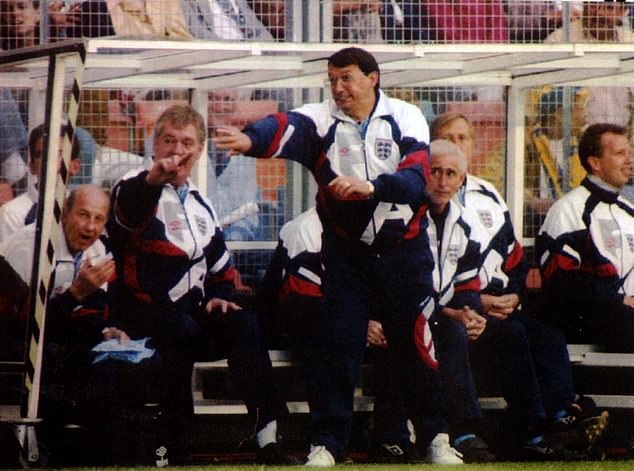
The Three Lions could manage only one point under Graham Taylor in the 1992 championship
1996 – Hiddink told Venables: ‘I’ve never been out-thought like that’
By Jeff Powell
In dramatic contrast to his Euros predecessors, Terry Venables, forever the innovator, decided his future lay elsewhere before the tournament.
Dismayed by the FA’s stubbornly blinkered refusal to extend this irrepressible extrovert’s contract in advance to France ’98, El Tel announced his intention to resign, win or lose this championship. He did so by saying: ‘I don’t do rehearsals.’
He then delivered a scintillating tournament launched by two huge acts of faith. Alan Shearer had been going through a dry spell but Venables believed he would return to proving himself one of England’s all-time greatest strikers. Five goals later Shearer finished as top tournament scorer.
Paul Gascoigne’s recovery from a broken leg included having drinks poured down his throat while laid back in a dentist’s chair in Hong Kong during a pre-Euros tour.
Gazza repaid his manager’s trust in a group game against Scotland by scoring what Venables described as ‘a goal of unimpeachable world class which Pele could not have bettered and was a wonder to behold.’
Shearer’s first goal secured an opening draw against Switzerland before Gazza nailed on the 2-0 defeat of the Scots. The final group game produced one of the finest performances in England’s history. A 4-1 win over a fabled Dutch side, with Shearer and his strike partner Teddy Sheringham scoring two apiece. At the final whistle, renowned Holland manager Guus Hiddink told Venables: ‘Never have I ever been out-thought tactically like this.’
Shearer and Gazza did their duty in the penalty shootout which followed a goalless quarter final draw with Spain. They did so again against Germany in the semi-final after Shearer opened the scoring and Gascoigne had come within a stud’s length of breaking the 1-1 impasse.
Unfortunately, this time, their efforts were to no avail. Gareth Southgate’s unhappy relationship with penalties began with him missing England’s sixth and last. Germany went on to beat the Czech Republic in the Final, while England were left to contemplate what might have been two years later in France had the FA not driven the most brilliant of English coaches to the end of his tether.
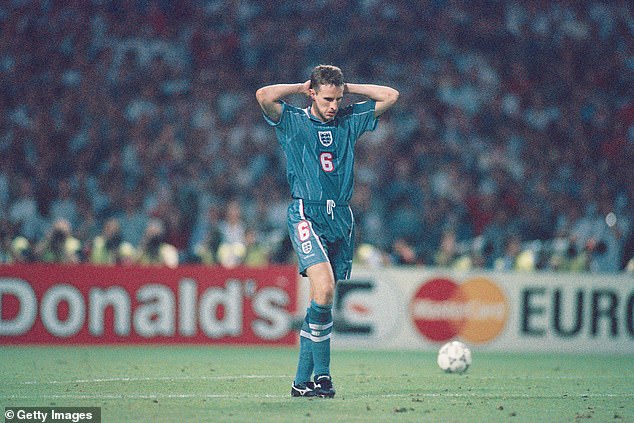
Gareth Southgate missed the spot-kick that saw England crash out in the semi-finals in 1996 to Germany at Wembley
Euro 2000 – Hooliganism so bad that England fans repented in a church visitors’ book
By Oliver Holt
To follow England at Euro 2000 was to be part of a sorry and bedraggled caravan. On the pitch, the team was limping along towards the end of something under Kevin Keegan and Alan Shearer, for so long the country’s talisman, was coming to the close of his career.
Off the pitch, it was even worse. England’s hooliganism problem was out of control and there were times during the tournament where it seemed Keegan’s side would be expelled from it.
In the light of that, perhaps it is inevitable that my abiding memory of my weeks in Belgium and the Netherlands that summer was wandering into a church vestibule on the edge of the Place Charles II, the main square in the Belgian town of Charleroi, a few hours before England’s game against Germany.
The Place Charles II had been desecrated by the chair-throwing, hate-ridden grotesques who made up an unhealthy percentage of England’s support back then but it was cool and peaceful inside the Eglise Saint-Christophe.
I flicked through the pages of the church’s visitors’ book and an England fan had jotted a note in it in the aftermath of the hooliganism that had unfolded the day before. It was the most recent entry.
‘I am sorry for what has happened to your city,’ he, or she, had written. ‘We are not all like that.’ England went out at the end of the group stage. The tournament, it was fair to say, was not sorry to see them go.
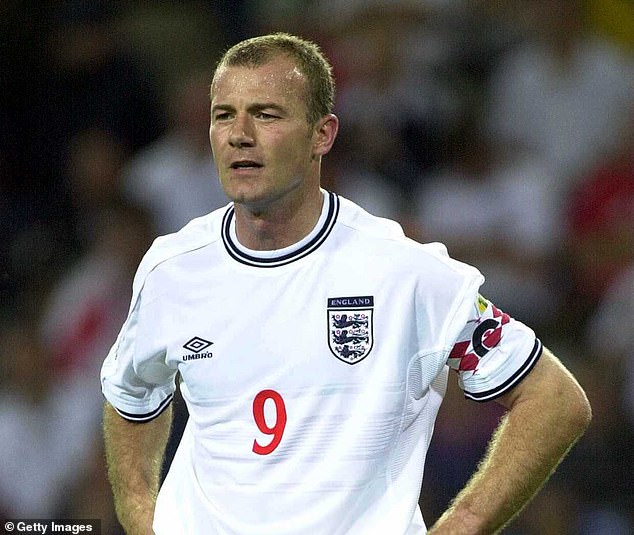
Alan Shearer was coming to the close of his career and England were blighted by off-field issues at Euro 2000
Euro 2004 – Scholes gets feisty as the golden generation blow their golden chance
By Oliver Holt
This felt like a golden tournament. It should have been England’s time. It could have been England’s time.
When people talk now about the playing riches at Gareth Southgate’s disposal, they ought to cast their eye over the array of talent that Sven Goran Eriksson had to draw upon in Portugal. England had Wayne Rooney to add to that roster, too.
Even though it may seem like hyperbole now, he had a claim to be the best player in the world at that moment when he was so young and fearless and ambitious and bold that the responsibilities of the game had not had time to weigh him down.
Relationships between the media and the England players were okay in Portugal and we even managed to persuade the FA to grant us a rare group interview with Paul Scholes.
The expectation, on both sides, was that he would be treated with kid gloves because he was nervous in front of the press but Scholes spoke extremely well and very bullishly ahead of the group game against France.
He managed a rather caustic put down of some mild boasting by some of the France team but when that put down was translated into The Sun’s back page headline, it emerged as ‘Shut It.’
It was not quite the mild-mannered message everyone had anticipated and it caused consternation and wry amusement in equal measure.
England lost to France, having outplayed them for much of the game, and then Rooney broke his metatarsal in the first knock-out game against Portugal and England were on the way home. We didn’t know it then but the Golden Generation’s best chance of winning a tournament had disappeared.
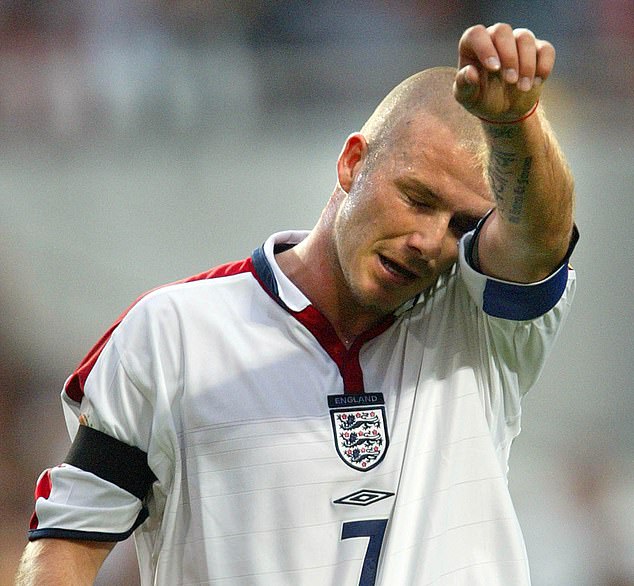
Euro 2004 should have been England's time but the Golden Generation blew their chance
Euro 2012 – When Joe Hart led the team in touches
By Oliver Holt
England were based in the centre of Krakow and spending a few weeks in one of Europe’s most beautiful cities was a privilege but then, and now, something of a pall hung over the tournament.
This won’t mean much to many outside our media bubble but the English media pack were on a coach travelling from Krakow to the airport in Katowice to catch a flight to Donetsk when we were told that our colleague, Danny Fullbrook, who was the Chief Football Writer for the Daily Star and was dearly loved, had died after a long battle with cancer. The press room at Wembley is named after Danny now and back then, the grief hit everyone hard.
The tournament was also logistically complicated. We seemed to spend an awful lot of time travelling from Poland to Ukraine, to the point where we became well acquainted with the vast airfield at the airport in Donetsk.
Donetsk, where England played group games against France and Ukraine, felt like a thriving, friendly city then but it has spent many of the intervening years in the midst of a war zone. There have been many reports of that airfield being the scene of fierce battles between Ukrainian forces and Russian-backed soldiers.
England never threatened to trouble the best sides in the tournament. They went out to the Italians in the quarter finals in a match remembered for the fact that goalkeeper Joe Hart had more touches than any other England player.
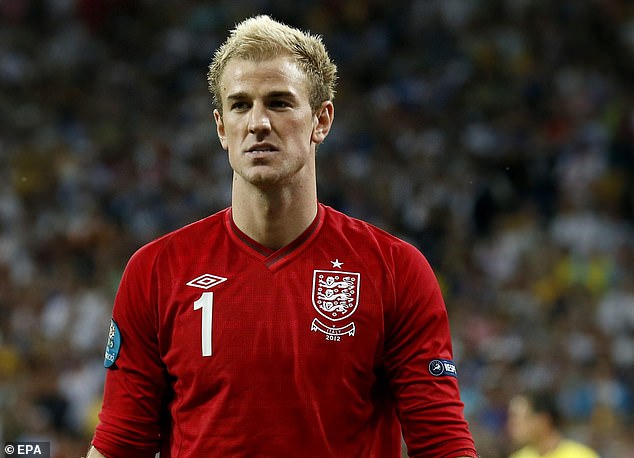
Joe Hart had more touches than any England player in the quarter-finals against Italy, where they lost on penalties
Euro 2016 – Roy goes sight-seeing instead of scouting Iceland
By Sami Mokbel
This was the first major international tournament I worked. As it so happens, I wasn’t there long. England were based in Chantilly, a quaint French town known for its horse racing rather than football.
Roy Hodgson, manager at the time, had nurtured a relaxed atmosphere within the squad - in hindsight perhaps too relaxed. The players were allowed out of the grounds of their hotel to meet up with WAGS, or simply potter around the streets of Chantilly before stopping for a coffee.
Jamie Vardy’s use of nicotine pouches generally known as ‘snus’ was exposed on that trip, while Hodgson’s No 2 Ray Lewington unwittingly gave the game - or rather the team - away when snappers caught view of his clipboard with details of their team selection.
Of course, my first Euros will always be defined by that embarrassing loss to Iceland in the last 16 in Nice. Hodgson unforgettably fell on his sword that night, resigning from his position immediately after the game.
Did England take Iceland too lightly? Yes, probably. Hodgson and Lewington caught some flack for taking a boat trip on the River Seine instead of scouting his Scandinavian opponents ahead of the game.
But that wasn’t why England crashed out. England could have beaten Iceland with their eyes closed. They didn’t. That’s on the players, not because Roy and Ray were on a boat.
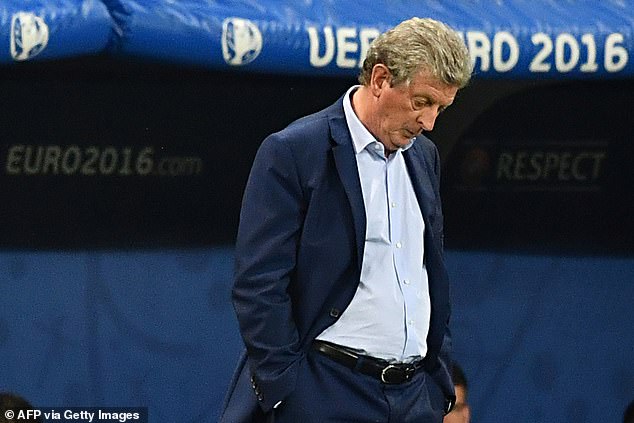
England didn't crash out to Iceland at Euro 2016 because Roy Hodgson was on a boat. That was on the players
Euro 2020 – Covid chaos can’t bring down the feel-good factor
By Sami Mokbel
This was effectively a home tournament for England, was a strange experience all told. For starters it was played in 2021 due to the Covid outbreak 12 months earlier.
By the time the tournament started, the country was emerging from the grips of the pandemic to return to normal life.
Yet, you couldn’t escape the hesitancy of it all. The stadiums were partly empty by the start. Supporters and players were petrified about their phones pinging with confirmation that they were required to isolate for coming into contact with someone who may or may not have contacted the virus. Face-masks. Covid tests. A surreal few weeks, really.
Ben Chilwell and Mason Mount were required to quarantine after coming into contact with Scotland midfielder Billy Gilmour following the two teams' 0-0 draw in the group stages.
Similarly, a TV crew were forced to miss the historical final between England and Italy at Wembley after coming into close proximity with a Covid carrier on the flight out to Rome for Gareth Southgate side’s quarter-final against Ukraine.
An unforgettable summer for all manner reasons. But, above all else, that was the summer England emerged as a genuine force on the world stage. The sun was shining, the beer was flowing, a feel-good factor all harnessed in by the fact England had a team to compete with the best.
They fell, agonisingly, at the last hurdle. The racist online abuse towards Marcus Rashford, Bukayo Saka and Jadon Sancho - who all missed penalties in the shoot-out loss to the the Italians - was a sad way for the tournament to end. So too were the scenes of mayhem outside Wembley in the build up to the final. Nevertheless, the summer of 2021 was one to remember.

England inspired the nation at Euro 2020 as they reached the final, but the tournament ended again in defeat on penalties







